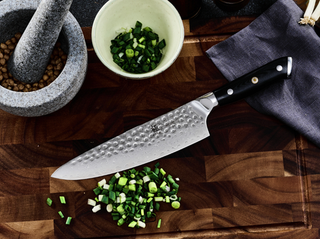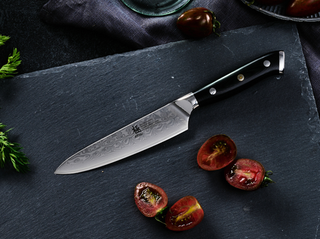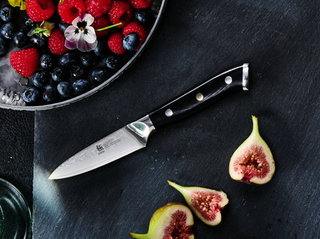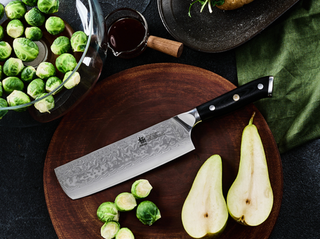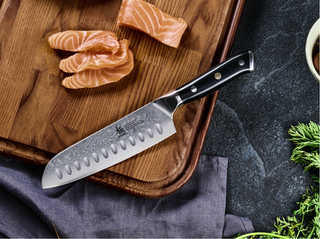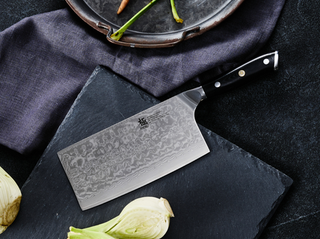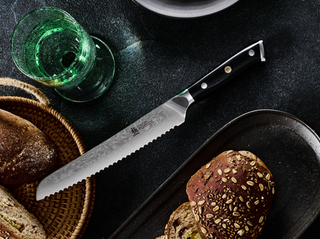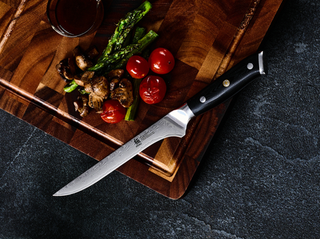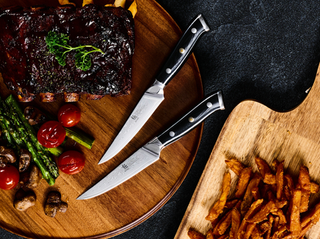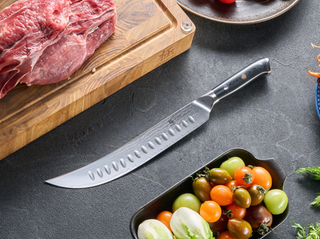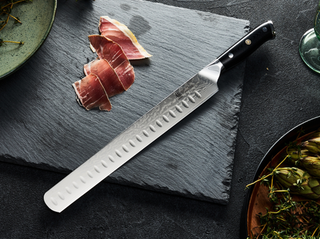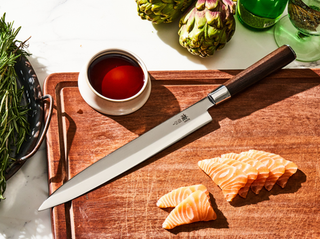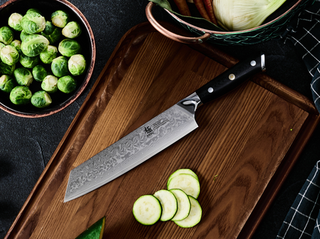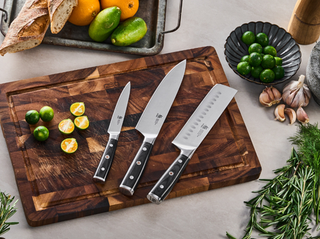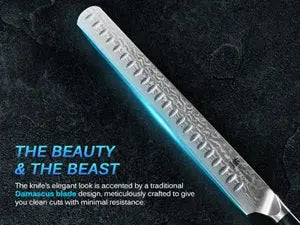When it comes to choosing the perfect brisket knife, there are several key considerations to keep in mind. A brisket knife, designed specifically for slicing through the tender and often sizable cuts of brisket, has distinct features that set it apart from other kitchen knives.
What is a Brisket Knife?
A brisket knife typically has a long, narrow blade, enabling precise cuts without tearing the meat. The length is crucial as brisket pieces can be quite large, and a longer blade allows for smooth, single-stroke cuts. A common blade length for brisket knives is around 12 inches, which provides a good balance between control and the ability to slice through large pieces of meat efficiently.
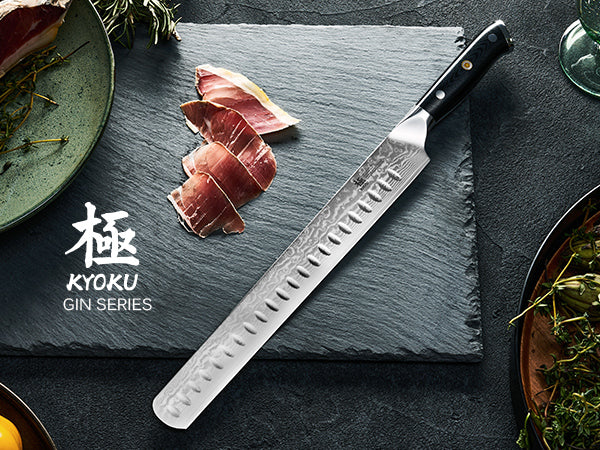
How long are brisket knife
Brisket knives generally measure around 12 inches in length. This size is ideal for handling the large and thick cuts of brisket, allowing for clean and efficient slicing without damaging the meat's texture. The length of the knife ensures that you can make smooth cuts with minimal effort, enhancing the overall presentation and quality of the brisket slices.
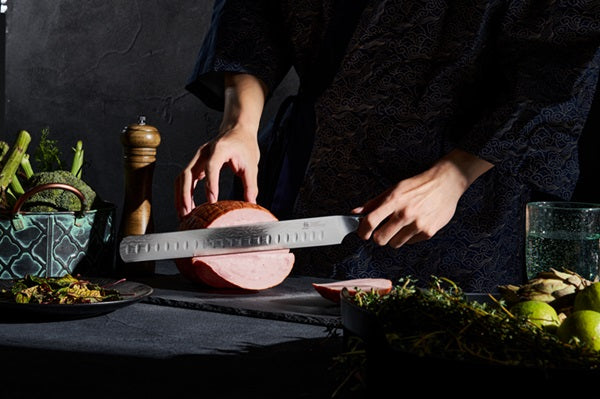
Why Do Brisket Knives Have a Hole in the Blade?
While not all brisket knives feature a hole in the blade, those that do often include it as a design element to reduce suction and friction, allowing for smoother slicing through meat. The hole can help to prevent the brisket from sticking to the blade, making the cutting process more efficient and effortless.
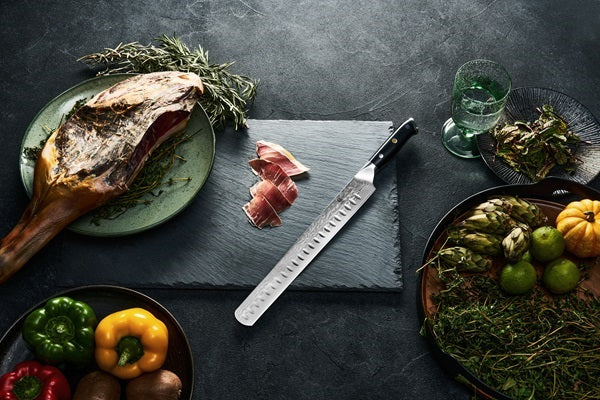
Why Do Steakhouses Use Serrated Knives?
Steakhouses commonly use serrated knives because they are excellent at cutting through the crust of a steak without tearing the tender meat inside. The serrated edge acts like a saw, making it easier to cut through tougher exteriors, a feature that's particularly useful when dealing with well-seared steaks.
How to choose Best Brisket Knives
Choosing the best brisket knife involves considering several key factors to ensure you get a knife that meets your needs for slicing brisket efficiently and effectively:
- Blade Length: A longer blade, typically around 12 inches, is preferred for brisket knives. This length allows you to make clean, single strokes through large pieces of brisket, which helps in preserving the meat's texture and juices.
- Blade Material: Look for high-quality materials like high-carbon stainless steel or German steel, which are known for their durability, rust resistance, and ability to maintain a sharp edge. Premium materials also contribute to the knife's overall performance and longevity.
- Handle Comfort and Grip: The handle should be comfortable to hold, offering a secure grip to prevent slipping. Materials like pakkawood or ergonomic designs can provide both comfort and control during slicing, making the cutting process more efficient and safer.
- Blade Design: Some brisket knives feature a Granton edge (scalloped blade) that helps prevent the meat from sticking to the blade, making slicing smoother. This feature can be particularly beneficial when working with moist or sticky surfaces.
- Flexibility and Balance: A good brisket knife should have a certain degree of flexibility to navigate the meat precisely. Additionally, the knife should be well-balanced, meaning the weight distribtion between the blade and handle feels comfortable in your hand, allowing for easier control during slicing.
- Maintenance and Durability: Consider the ease of maintenance, including sharpening and cleaning. Knives that are easy to care for will last longer and perform better. Also, check if the knife comes with a warranty, as this can indicate the manufacturer's confidence in the product's durability.
- Price and Value: While high-quality brisket knives can be an investment, it's important to find one that offers good value for the price. Consider your budget, but also look for a knife that meets your needs in terms of quality and performance.

By keeping these factors in mind and reading reviews from trusted sources, you can find a brisket knife that suits your preferences and enhances your cooking experience.
